The first day of June marked the commencement of the academic year for the SAC-operated schools. Those families who have the means to do so begin to get ready by purchasing lunchboxes, uniforms, and school supplies for their children.
.
Amidst the challenging political situation and ongoing conflict, a considerable number of students still find themselves unable to access educational facilities.
Displaced children, amidst ongoing armed conflict, find themselves in a state of dilemma and encounter multiple difficulties when it comes to accessing education. On one hand, if they aspire to attend schools under the administration of the State Administration Council (SAC), their family members often struggle to afford the required school fees and educational expenses. On the other hand, if they seek education through schools operated by the National Unity Government (NUG), they face limited access to the necessary platforms and technology essential for effective learning.
Due to the lack of organizations that support displaced children’s education, IDP camps are lacking teachers and education facilities.
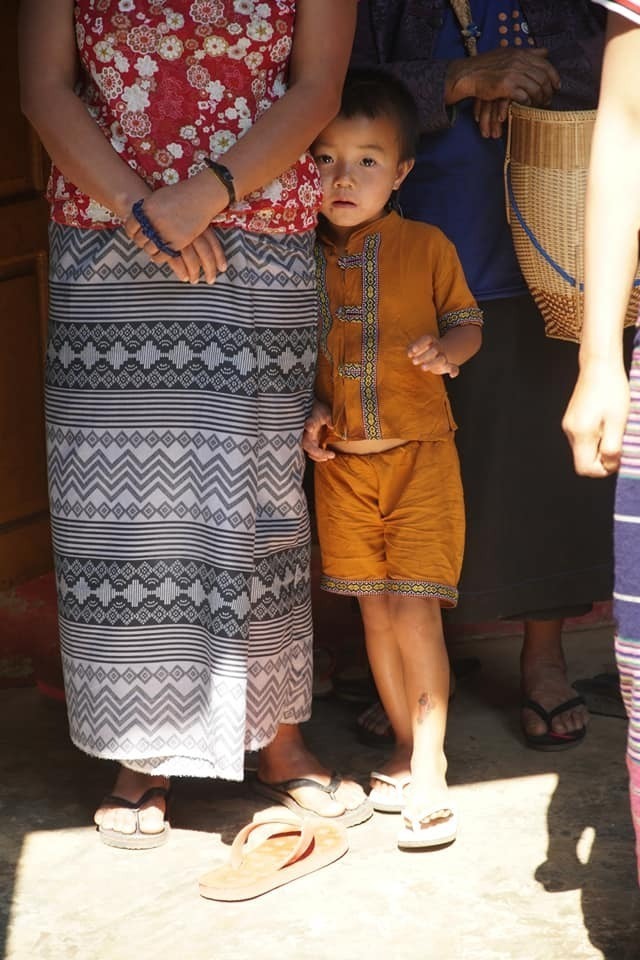
“We are reliant on donations even for our survival, leaving us with little to no extra funds to purchase essential school supplies like books and uniforms. Despite our strong desire to send our children to school, we are currently grappling with the basic challenge of ensuring three meals a day,” shared Nang Pyone Nge, highlighting the hardships she and others are currently facing.
Nang Pyone Nge and her two sons have been displaced in an IDP camp in Panglong (aka Pinlaung) township for the past four months.
As time goes on, the savings she had carefully accumulated are dwindling. Now, they heavily rely on donated funds, and Nang Pyone Nge is increasingly concerned about the education prospects for her two sons.
Amidst the fragile political and economic conditions, several organizations and groups have strongly advised against sending children to schools under the State Administration Council (SAC).
Although some families who can afford it might opt to enroll their children in private schools, displaced or IDP families like Nang Pyone Nge’s do not have the same financial means. In the absence of educational support within IDP camps, such as enough teachers, systems and facilities, they are left with no alternative but to send their children to schools operating under the SAC, despite the concerns raised by different organizations and groups.
“If there were CDM teachers in our IDP camp, it would have been manageable, but right now, there aren’t even any schools or facilities available. We have no option but to send our children to state (SAC) schools, even though I still don’t have the money to afford it. There are no organizations offering assistance with schooling. I worry that my kids won’t have the fundamental education they need as they grow up,” expressed Nang Pyone Nge with a sense of sadness and concern.
Nang Pyone Nge’s eldest son, who is now four years old, has reached the age to embark on his educational journey. Like any parent, she longs to experience the excitement that comes with sending a child to school for the first time. She shares the universal desire to enroll her children in schools that provide a peaceful learning environment and offer access to quality education.
However, Nang Pyone Nge shared her feelings, saying, “I also yearn for the joy and excitement that other parents experience when they purchase school essentials, uniforms, bags, and bid farewell to their children as they head off to school. Unfortunately, instead of feeling excitement, I am now overwhelmed with worry.”
In the IDP camp where Nang Pyone Nge and others have sought refuge, the availability of donors is limited. As a result, there are days when the IDPs must go to Pinlaung to engage in daily labor in order to earn some money and meet their basic needs.
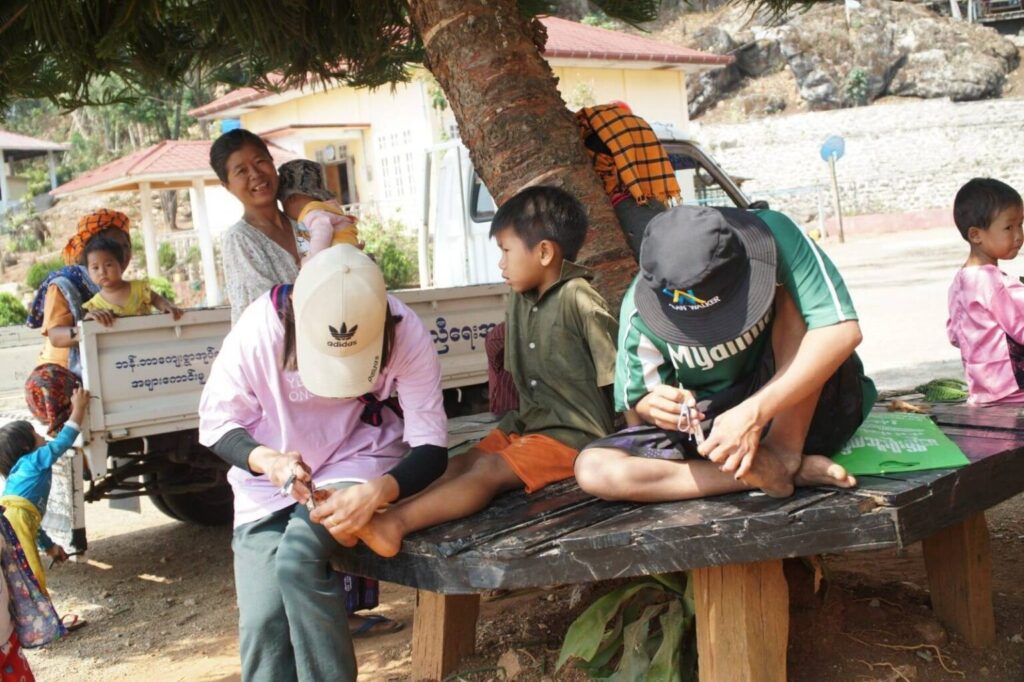
“To meet our basic needs, we have no choice but to engage in daily labor. We are even struggling to ensure we have a single meal per day. Now, the thought of sending our children, even just one of them, to school adds to our worries,” expressed Nang Pyone Nge, highlighting the immense challenges they face.
As per the data collected by the IDP committee, there are over 400 children and students among the IDPs in Pinlaung township who should be enrolling in or attending schools, ranging from kindergarten to high school.
Some of these IDP children are attending State/government schools, while others are enrolling in self-funded monastic schools. However, it has been noted by those supporting the IDPs that there is a shortage of teachers available to cater to the educational needs of these displaced children.
As reported by the IDPs committee, the IDP students, particularly those attending government schools under SAC control, are in need of essential school materials such as uniforms, stationery, bags, pencils, and pens.
“The camp committee is currently collecting a list of essential needs, with school uniforms and bags being the primary requirements for students. To address these needs, we will convene a meeting of the IDP committee. We also kindly would like to request for support and donation to fulfill these supports” stated the IDPs supporting committee.
Due to the increasing number of IDP students, some state/government schools in Pinlaung have implemented limitations on student admissions.
The armed clashes in Moebyae and Phekone, which occurred on the Shan-Karenni (Kayah) border after the military coup, have resulted in the displacement of over 6000 individuals in Pinlaung townships.
The IDPs are in urgent need of food and supplies, but it is equally crucial not to overlook the importance of the children’s education.
“Everyone has the right to access education, at least to a basic level, and it should be provided free of charge.” This right is an integral part of the fundamental human rights outlined in the United Nations’ Declaration of Human Rights, proclaimed on December 10, 1948.
The Declaration of Human Rights is meant to be respected and implemented by member states. Efforts are made to raise awareness among citizens of each country through educational institutions and organizations.
Therefore, it is essential to offer displaced children various types of help for their schooling. The ongoing and prolonged fighting and resistance could increase the number of people without an education if the education of IDP children is not given priority.
“Most children in the IDP camps can have access only to schools under the SAC. The IDP camps are also unable to provide any educational support or services. Additionally, the NUG is currently unable to address the children’s educational needs,” stated a committee member of the IDP camps in Pinlaung.
The displaced children arriving in Pinlaung township have no alternative but to attend schools run by the SAC. The committee urges those opposing the SAC and discouraging children from attending school to consider the plight and challenging situation of the displaced children in Pinlaung, urged the IDP committee.
“My wish is to prioritize the children’s education and enable them to have access to education. Although if we cannot send them to private schools like others, they should be allowed and enabled to attend schools that they have access to, be it schools operated under the SAC. We feel like we are being irresponsible if we cannot send our children to school,” stated Nang Pyone Nge sadly.





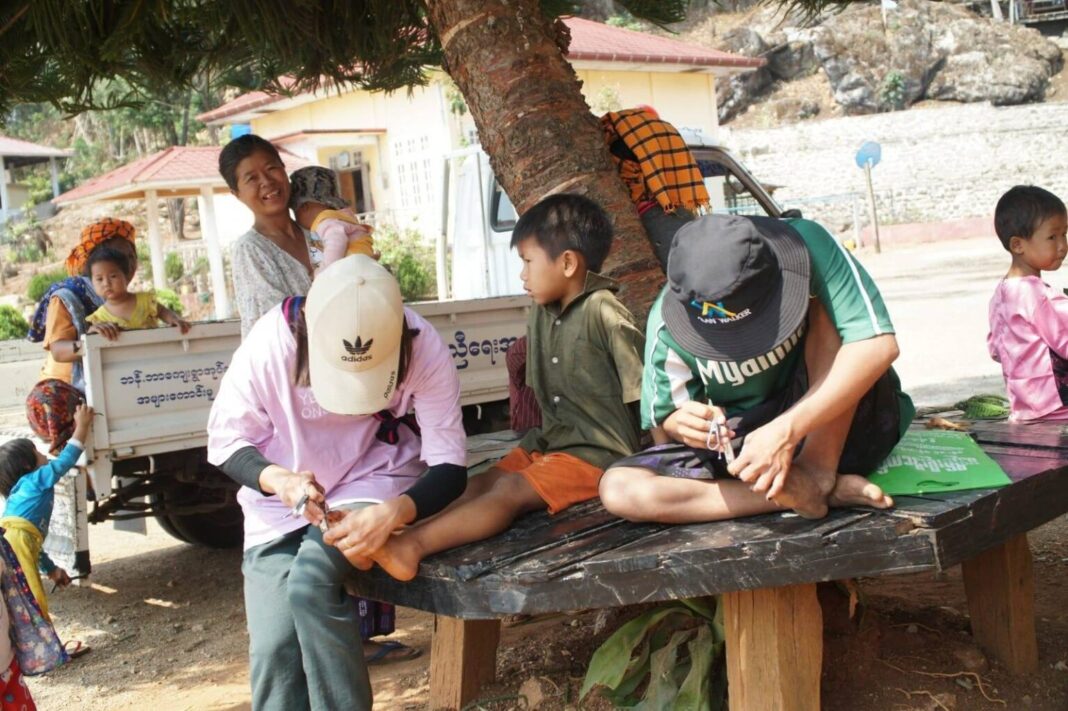
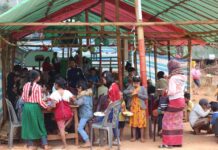
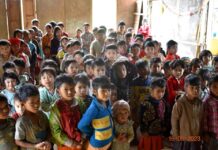
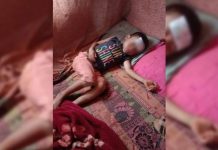
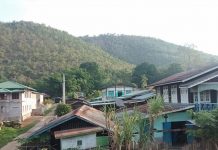
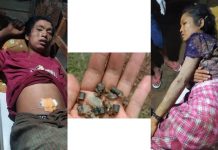






Leave a Comments